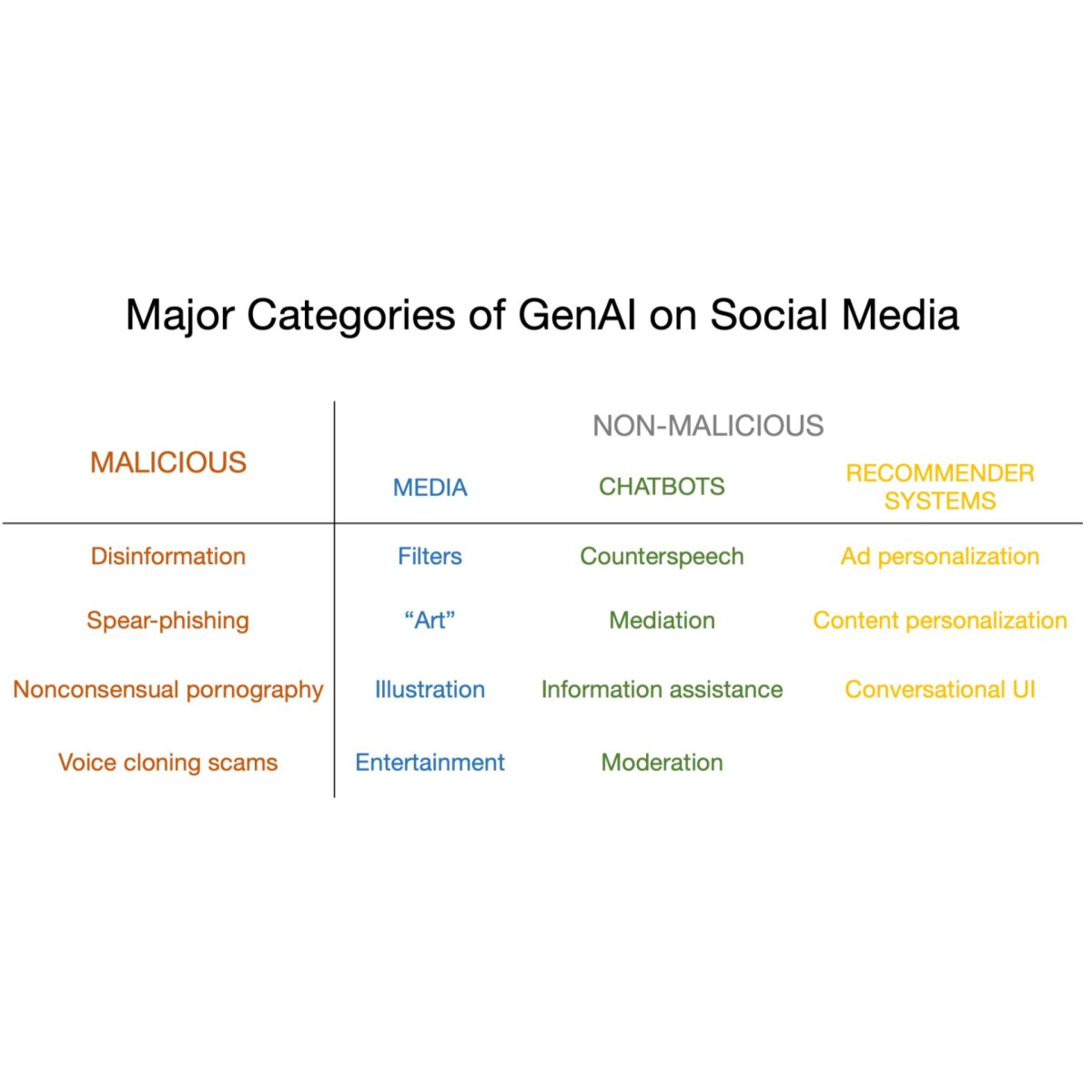
Algorithmic Amplification and Society
A project studying algorithmic amplification and distortion, and exploring ways to minimize harmful amplifying or distorting effects
Most online speech today is hosted on algorithmic platforms that are designed to optimize for engagement. But algorithms are not neutral. They amplify some speech and suppress others. Some effects are positive, such as the decreased power of gatekeepers in identifying new talent. Others exert a pervasive distorting effect on everything, whether the production and dissemination of science or the tourism industry.
Under the direction of the Knight Institute’s 2022-2023 Visiting Research Scientist Arvind Narayanan, the Institute will examine how algorithmic amplification and distortion shape specific domains, markets, or facets of society, and explore ways to modify algorithms or design in order to minimize harmful amplifying or distorting effects.
Through a series of blog posts, essays, and a major symposium—entitled “Optimizing for What? Algorithmic Amplification and Society,” held April 28-29, 2023, at Columbia University—this project seeks to identify gaps in existing understandings of algorithmic distortion, as well as uncover and explain the true principles that govern the movements of online speech.
Featured

Essays and Scholarship
-
Communicative Justice and the Distribution of Attention
When it comes to the digital public sphere, we can do better. But what exactly does better look like?
By Seth Lazar -
Teachable Agents for End-User Empowerment in Personalized Feed Curation
Empowering users to shape their own social media feeds
By Kevin Feng , David McDonald & Amy Zhang -
Algorithmic Amplification for Collective Intelligence
Social media promised a new, democratized, and digital public sphere. Algorithms can help us get there.
By Jason W. Burton -
The Myth of The Algorithm: A System-Level View of Algorithmic Amplification
To understand how algorithms shape the internet, we must understand what algorithms really are.
By Kristian Lum & Tomo Lazovich -
The Algorithmic Management of Polarization and Violence on Social Media
How social media is designed has the potential to escalate conflict. It's becoming clear that platforms can do more to monitor their impact and discourage violence.
By Jonathan Stray , Ravi Iyer & Helena Puig Larrauri -
What’s in an Algorithm? Empowering Users Through Nutrition Labels for Social Media Recommender Systems
What if there were a way to measure and better understand social media platforms' algorithms? With "nutrition labels," there might be.
By Luca Belli & Marlena Wisniak -
Understanding Social Media Recommendation Algorithms
Towards a better informed debate on the effects of social media
By Arvind Narayanan -
How to Prepare for the Deluge of Generative AI on Social Media
A grounded analysis of the challenges and opportunities
By Sayash Kapoor & Arvind Narayanan
Institute Update
-
Call for Participation: Optimizing for What? Algorithmic Amplification and Society
The Knight Institute invites submissions for its spring symposium, April 27-28, 2023, at Columbia University
By Arvind Narayanan & Katy Glenn Bass
Quick Take
-
Introducing Visualizing Virality
Illustrating and investigating virality and demotion on Twitter
By Arvind Narayanan
Quick Guide
Deep Dive
-
Generative AI companies must publish transparency reports
The debate about AI harms is happening in a data vacuum.
By Arvind Narayanan & Sayash Kapoor -
TikTok’s Secret Sauce
TikTok’s algorithm is ordinary. Its real innovation is something else.
By Arvind Narayanan -
How To Train Your TikTok
Simple ways to better navigate the platform’s ocean of video content
By Arvind Narayanan
















